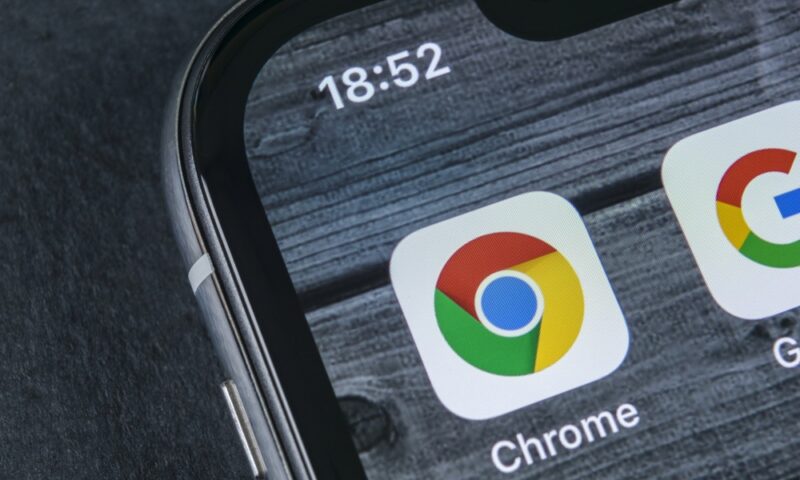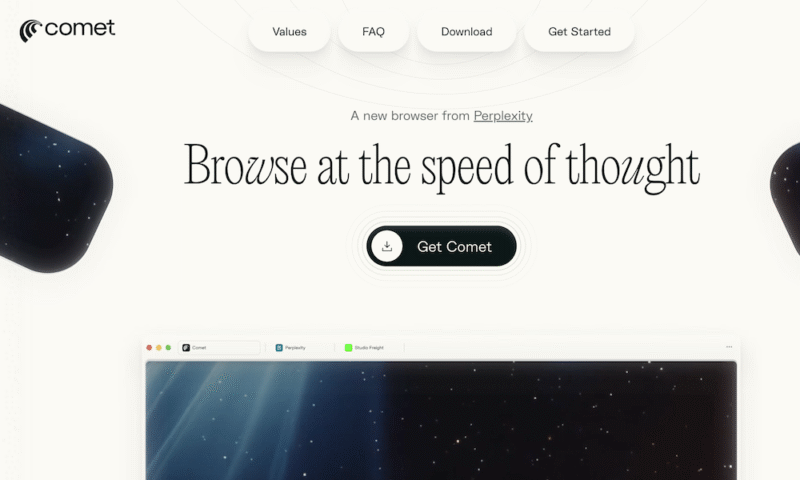Perplexity Makes Bid to Purchase Chrome for $34.5 Billion Amid Antitrust Woes for Google
Last year, Google lost a landmark antitrust case, with the DOJ requesting that the company be forced to sell its immensely popular Chrome web browser.

In a stunning announcement, AI company Perplexity announced this week that it’s prepared to purchase the Google Chrome browser for $34.5 billion dollars.
Perplexity isn’t the first company to express interest in getting its hands on the world’s most popular browser, with other interested parties like OpenAI and Yahoo likely to throw their hats in the ring should Alphabet (Google’s parent company) be forced to sell the browser.
Google’s Antitrust Problems
The U.S. Department of Justice filed an antitrust case against Google back in 2020, alleging that the company engaged in monopolistic practices that allowed it to dominate the online search and advertising industries.
Google fought the case for four years, until the landmark ruling came down in August 2024, with the judge agreeing with the DOJ’s central claim of monopolistic and anti-competitive behaviour on the part of the search giant.
A remedies trial was then held in April of this year, in which the DOJ outlined a range of proposals. This included Google being forced to sell the Android operating system, or alternatively a ban from making Google Search the default search engine on Android devices.
Furthermore, the DOJ also requested that Google be prevented from entering into agreements with other companies to make Google the default search engine — such as their $20 billion deal with Apple or the deal with Mozilla Firefox, which reportedly sees Google pay around $410 million (accounting for more than 80% of Mozilla’s total revenue).
Out of all the proposals, the one that’s generated the most speculation and interest is to order Alphabet to sell its web browser; Google Chrome. Chrome is by far the most popular web browser in the world, accounting for nearly 68% of the global browser market share. Safari is a distant second at around 16%.
Unsurprisingly, Google rejected the DOJs proposals, describing them as “wildly overboard” and that spinning off either Android or Chrome would only hurt consumers by giving them “inferior products.”
Perplexity’s Offer
Although it’s not even clear if Google will be forced to spin off Chrome by selling it, Perplexity decided to throw its hat in the ring early by presenting an unsolicited offer to purchase the web browser.
Both Perplexity and OpenAI have previously stated in court that they are at a distinct disadvantage to Google when it comes to developing AI, since Chrome’s wide adoption means that it’s a veritable treasure-trove of data that can be used for training future models and algorithms.
As part of the antitrust proceedings, the CEO of DuckDuckGo estimated the value of Chrome to be $50 billion, while other industry analysts have speculated that its actual value could be in the hundreds of billions of dollars. That means that even if Google is forced to liquidate its ownership of Chrome, Perplexity’s offer is unlikely to be accepted, as other players will almost certainly make offers exceeding the $34.5 billion from Perplexity.
Notably, the $34.5 billion proposed price tag is nearly double the entire valuation of Perplexity as a whole, which is valued at $18 billion, after its most recent round of financing. That said, there is an enormous amount of investment money currently available to AI companies, so it’s not inconceivable that Perplexity could raise the money if the offer were to be accepted.
Besides taking over ownership of Chrome, the offer also comes with a commitment to keep the underlying Chromium infrastructure open source, and to invest $3 billion into the framework over the next two years. Perplexity also recently launched its own in-house browser called Comet that’s powered by its AI model.

What Happens Next?
The big question right now is whether or not Google will actually be forced to sell off Chrome, or if Judge Amit Mehta will order more lenient measures. Considering how intrinsic Chrome is to Google’s entire business empire as a data collection point, it’s unclear what the company will even look like without its flagship product.
For its part, Google has vowed to appeal any order to sell Chrome or Android, which means an actual sale going through is unlikely for at least a few years as the appeals process unfolds.
Judge Mehta’s decision is expected by the end of August, which means we’ll know what the next step in Google’s antitrust saga will be within a couple of weeks. If you’re interested to see where the story goes, sign up for our newsletter below to be notified as we continue covering this story.

